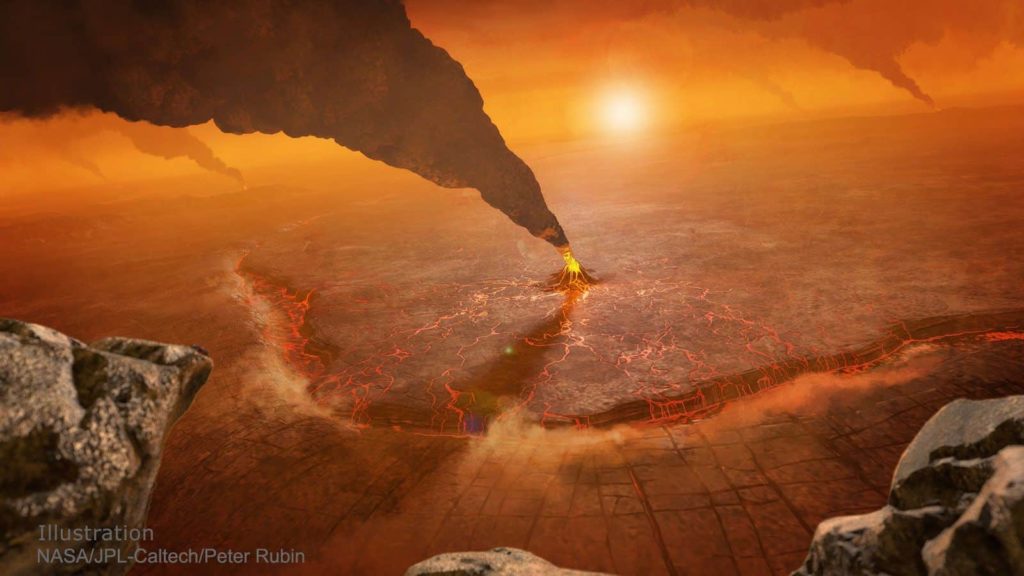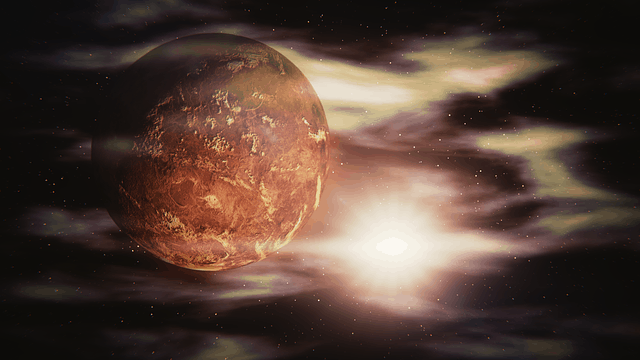The US space agency NASA released an impressive image showing what a volcanic eruption would look like on the planet Venus.
Earlier this year, evidence on the existence of active volcanoes on Venus was reported, in particular an inexplicable heat in regions believed to contain only ancient volcanoes, the agency notes in a description of the artistic illustration published on October 27.
The image reconstructs an erupting Venusian volcano. Although photos of Venus have been taken, thick clouds of sulfuric acid prevent optical views of light.
Volcanoes could play an important role in Venus’ life cycle, specialists consider.

“They could push chemical foods into the cooler upper atmosphere where hungry microbes might float.”
Although the possibility of microbial Venusians being airborne “is certainly exciting,” it is now controversial, NASA admits.
